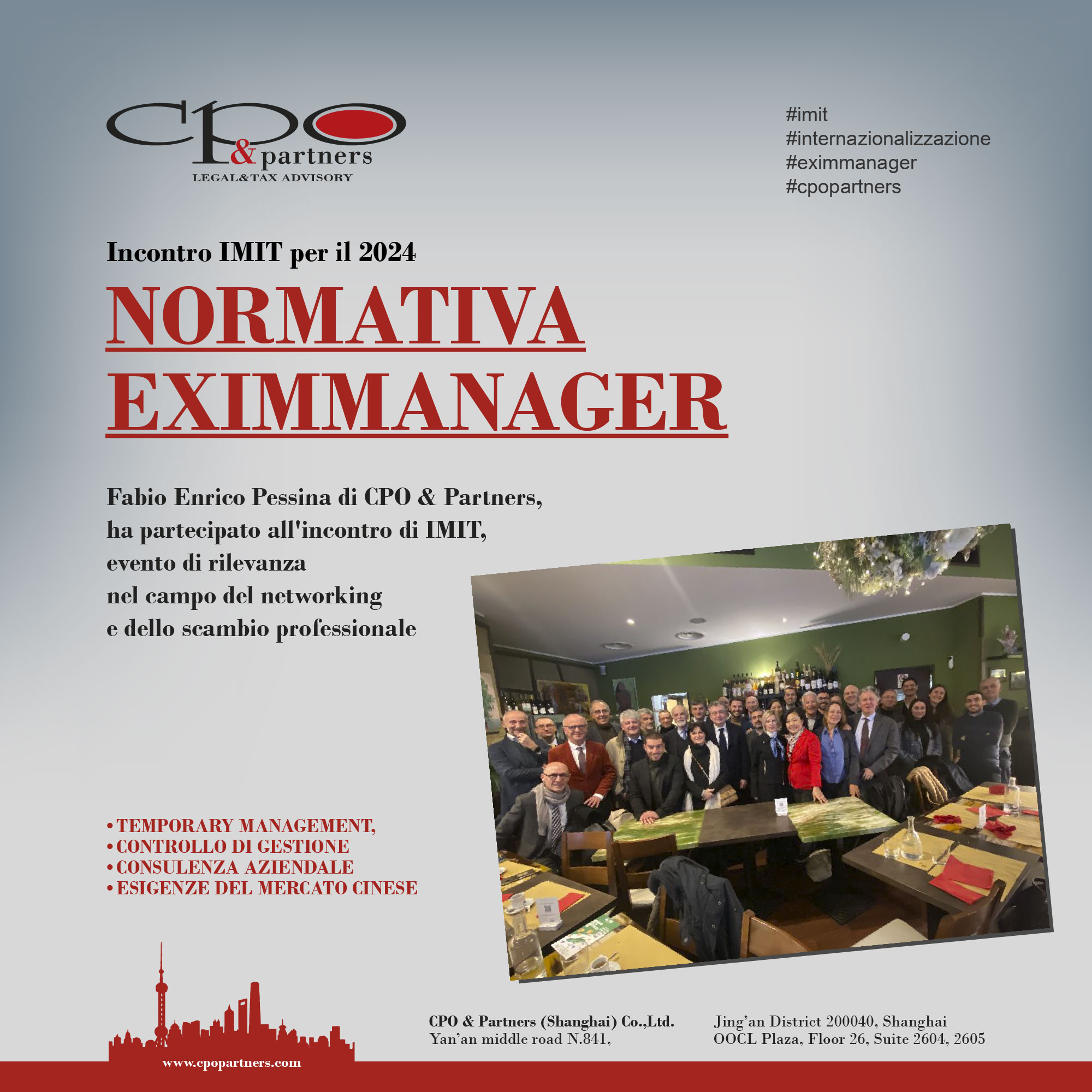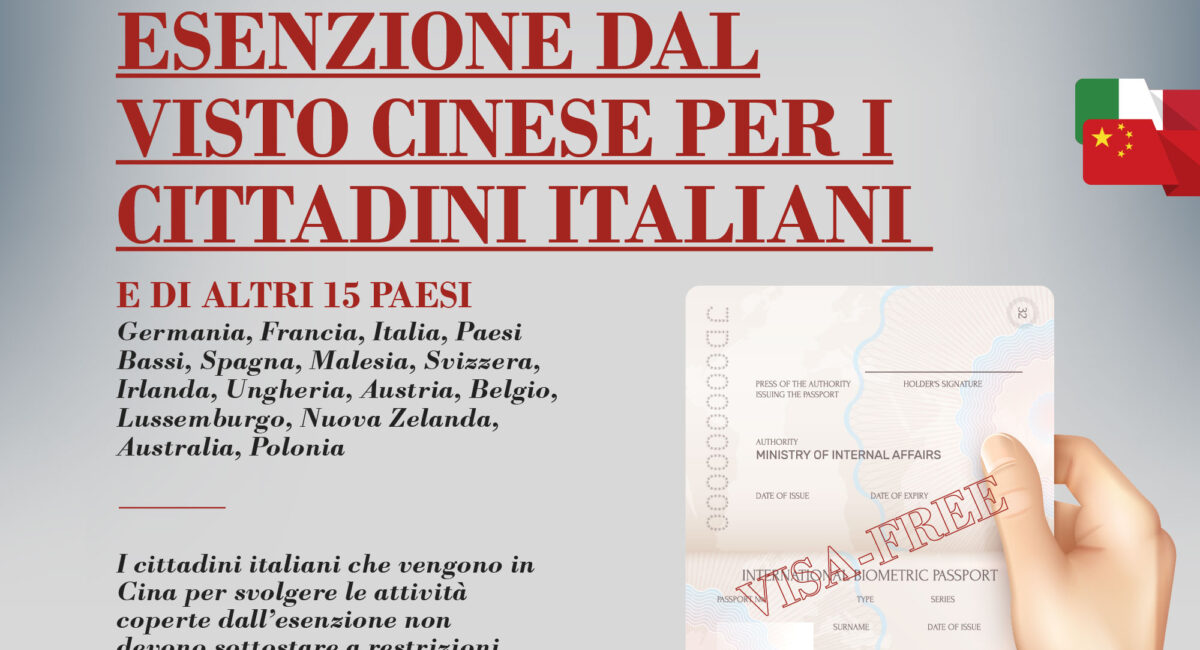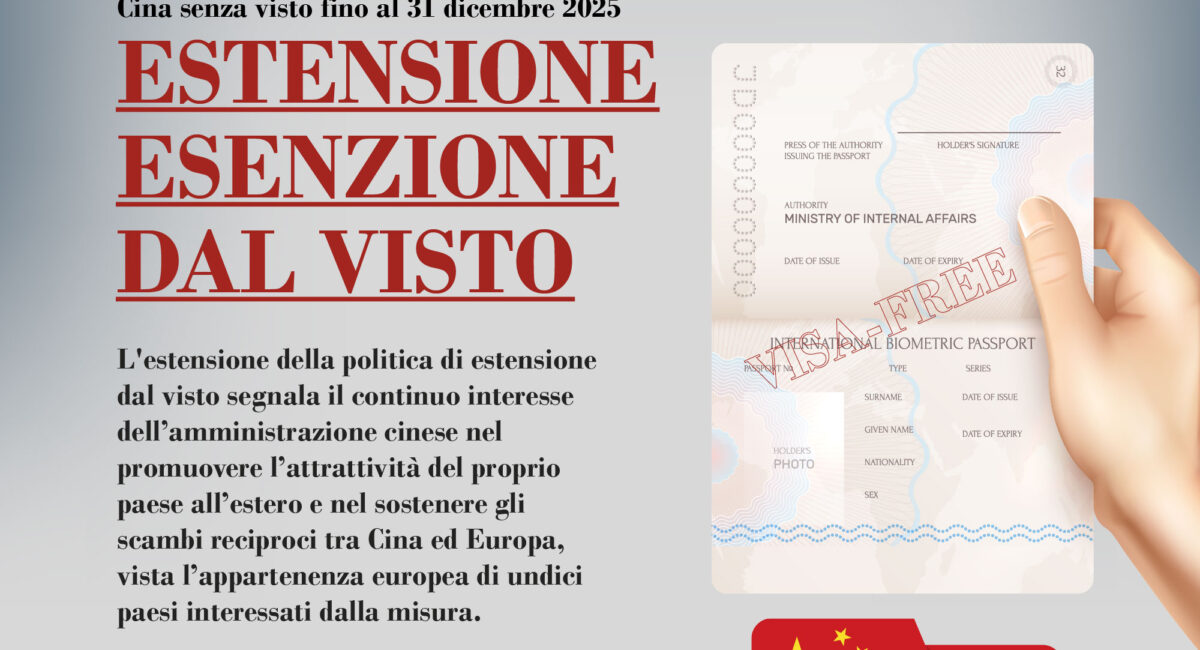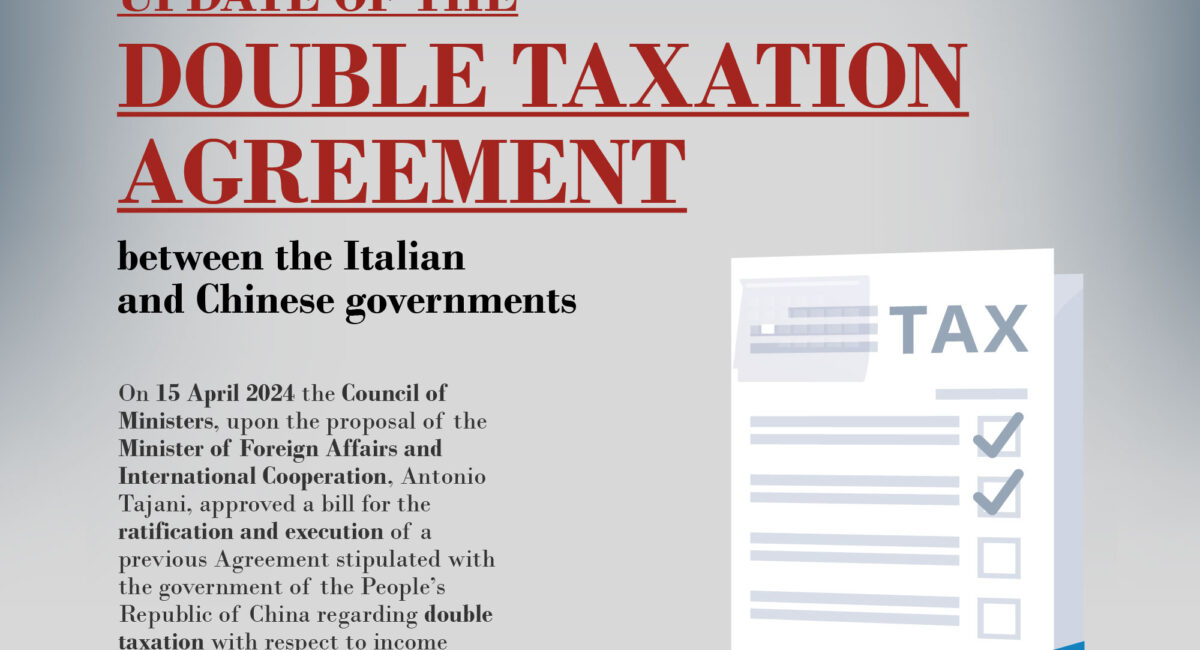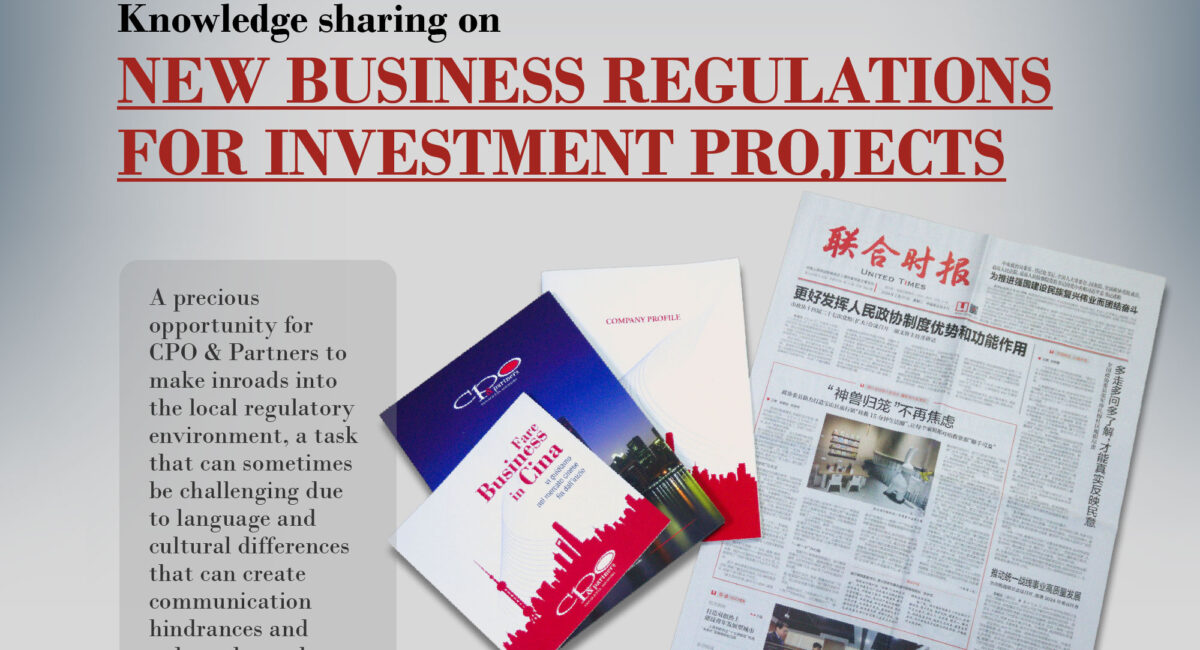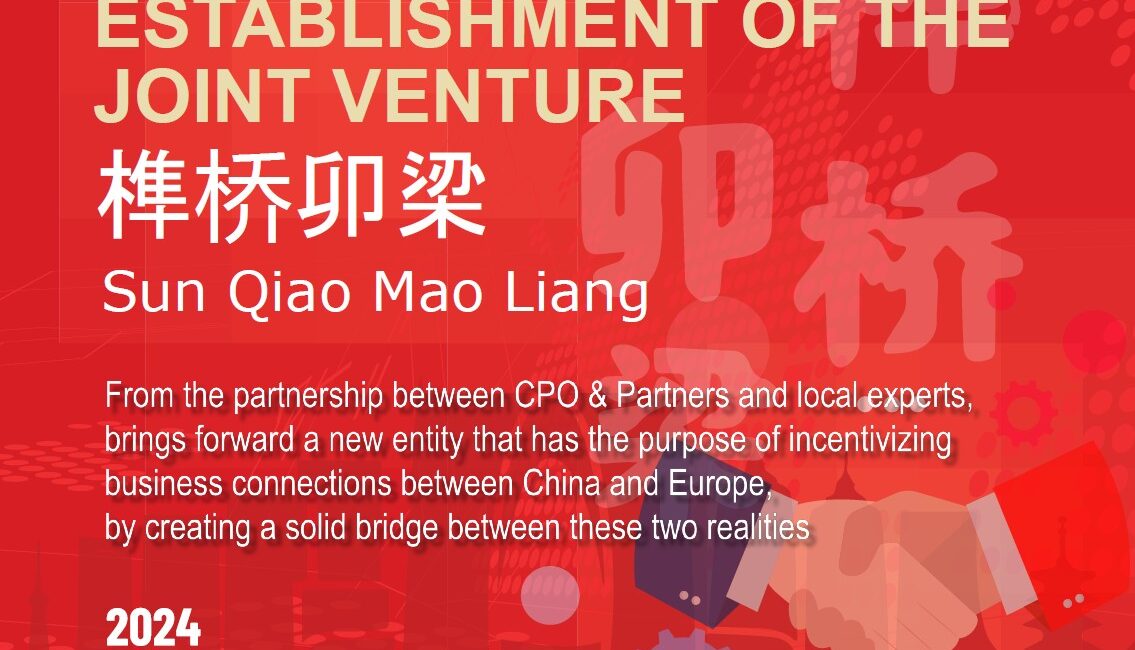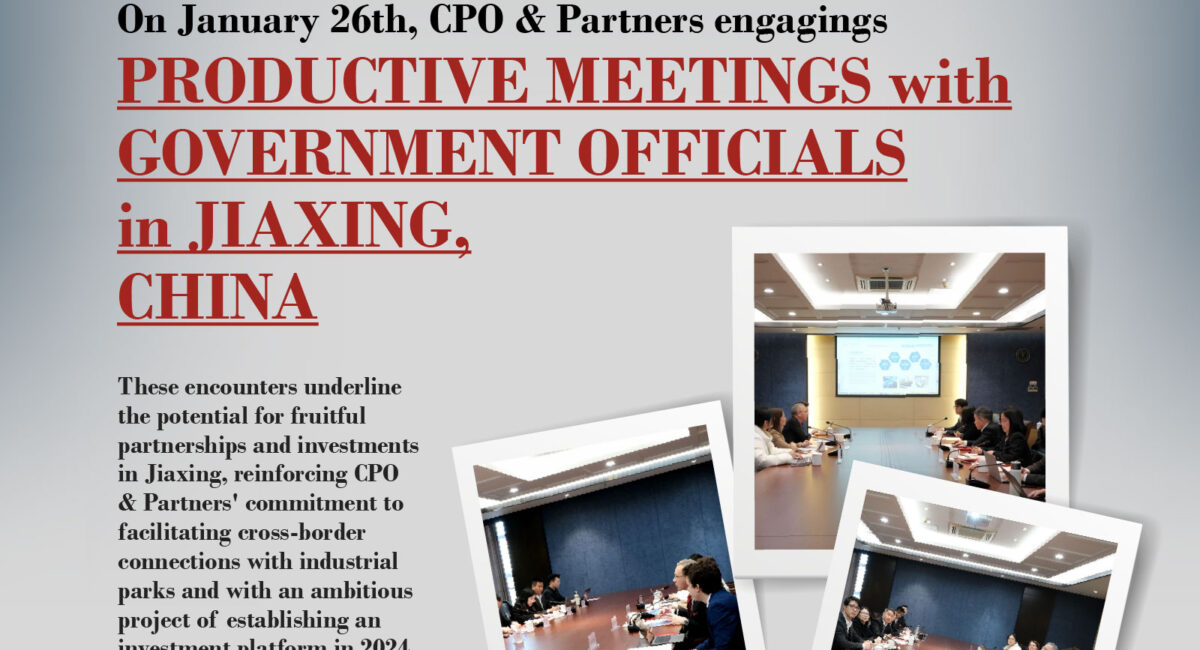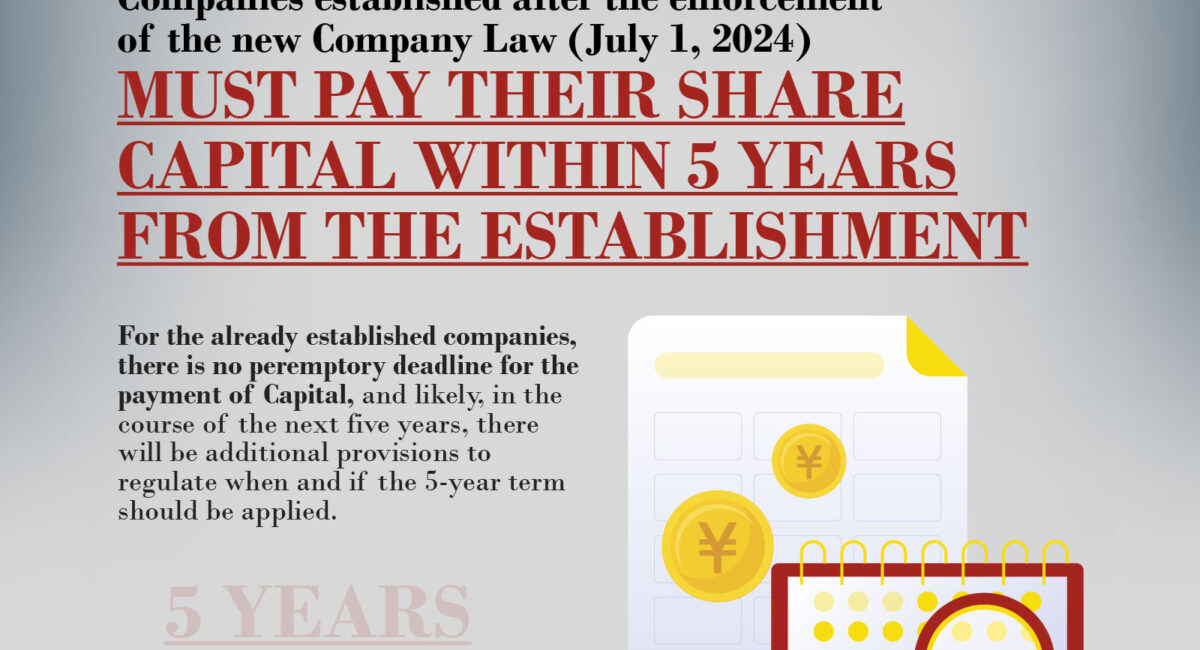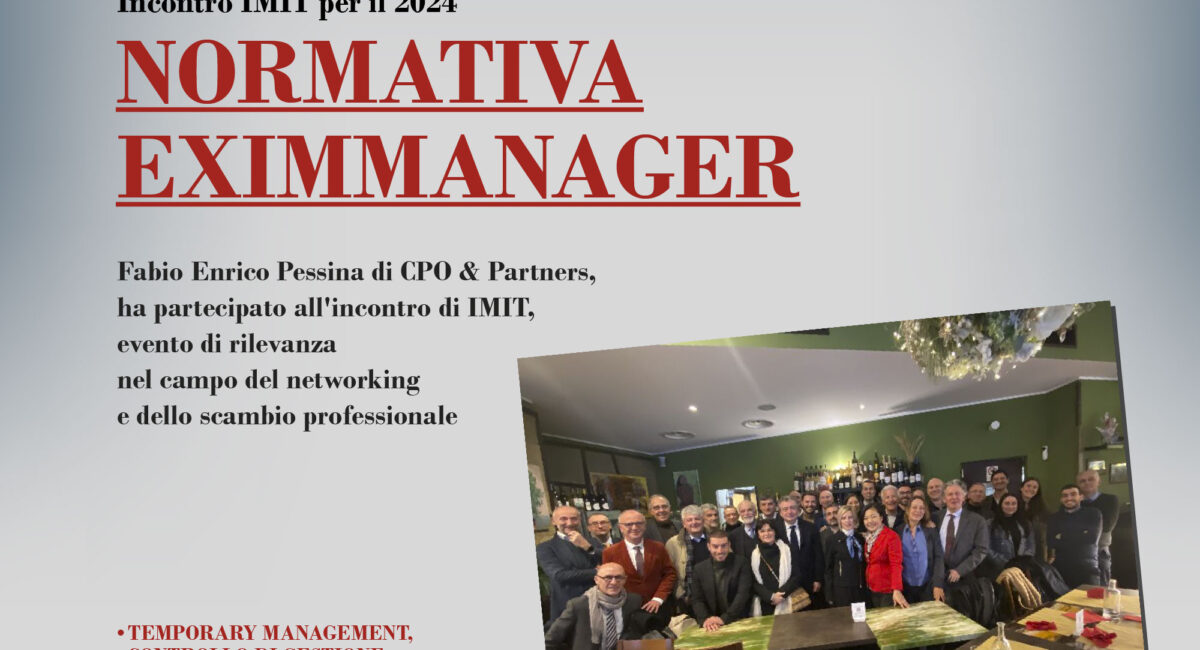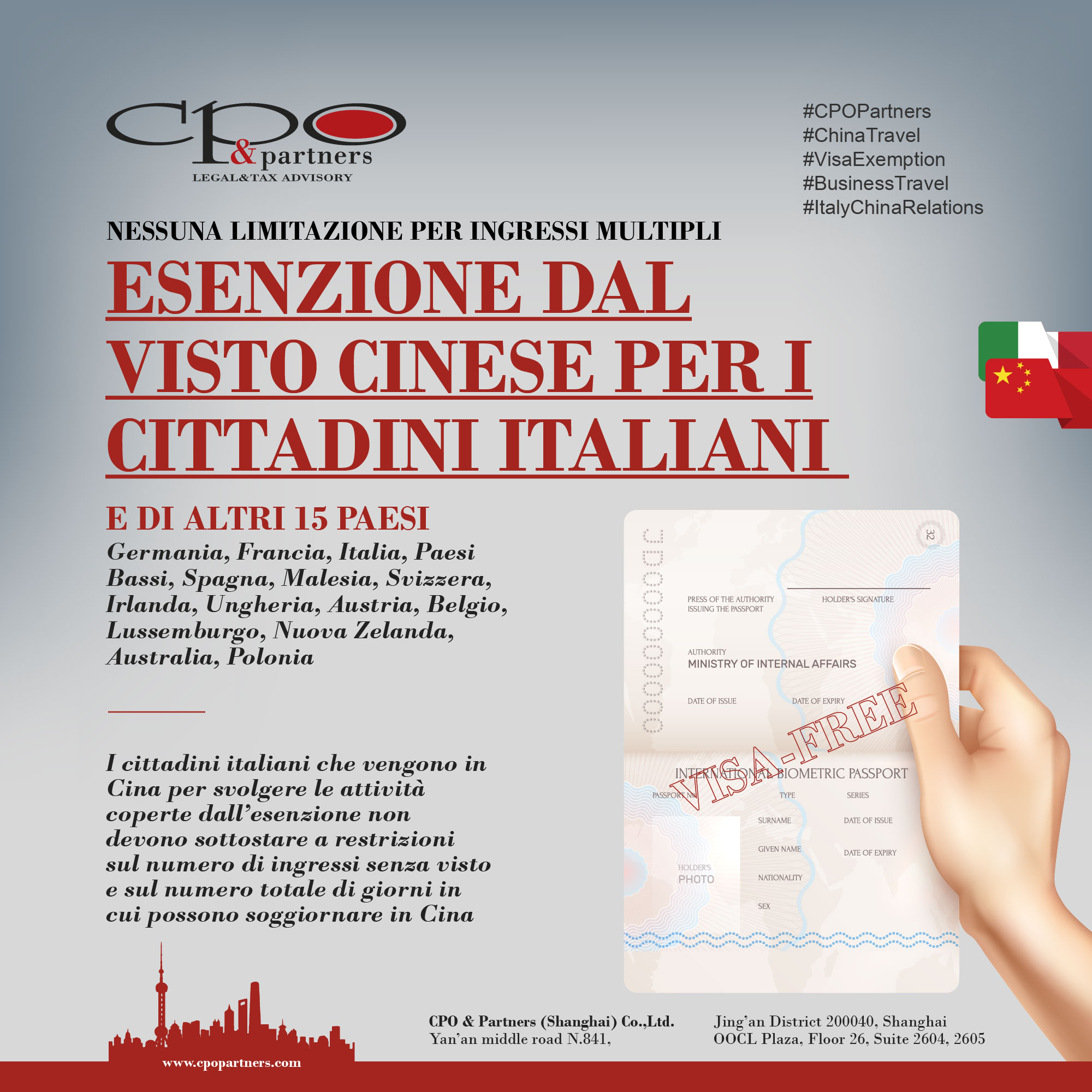
CPO a fianco dei clienti alla Design Shanghai 2024

CPO a fianco dei clienti alla Design Shanghai 2024
Uno degli eventi di design internazionale più prestigiosi al mondo, il principale in Asia. Arricchito dalla sezione dedicata ai giovani talenti emergenti, sempre all’avanguardia, è tenuto in grande considerazione dalla comunità del design internazionale.
Si tiene in questi giorni al Shanghai World Expo Exhibition & Convention Center (la sede di Expo 2010) e tenta di esplorare come le filosofie di design orientali e occidentali possano lavorare sinergicamente. Numerosi gli espositori italiani che, dopo il Salone di Milano, approcciano la Cina e l’Asia attraverso il ponte offerto da Shanghai.
Cina, estensione esenzione dal visto
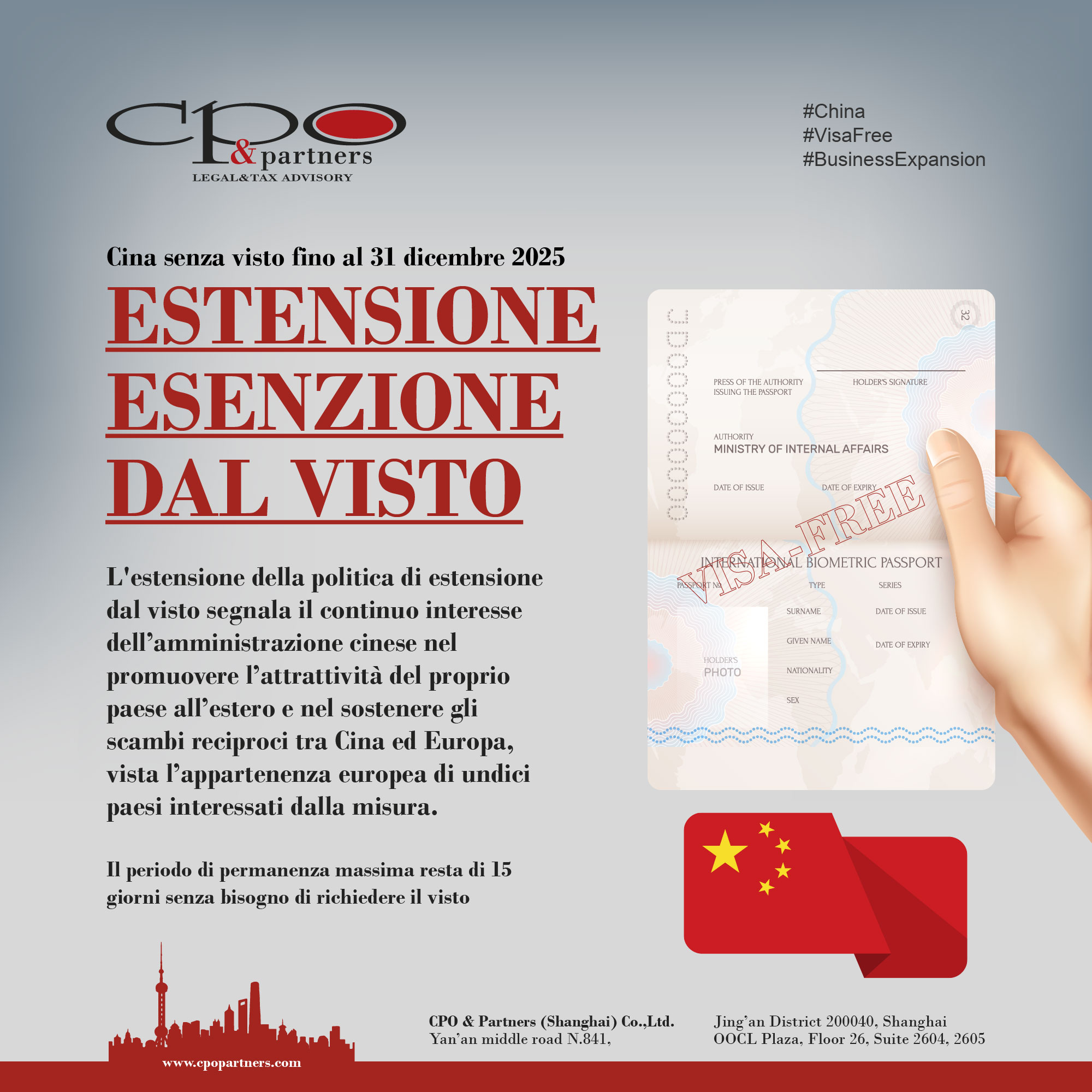
A seguito dell’annuncio ufficiale da parte del portavoce del Ministero degli Affari Esteri cinese lo scorso 7 maggio, il governo della Repubblica Popolare Cinese ha deciso di estendere la politica di esenzione dal visto introdotta alla fine del 2023.
L’anno scorso era stata ufficialmente concessa la possibilità, inizialmente ai cittadini di Italia, Francia, Germania, Paesi Bassi, Spagna e Malesia (poi estesa ad un totale di dodici paesi) di entrare nel territorio cinese per affari, turismo, visite a parenti e amici e transito per un periodo di permanenza di massimo 15 giorni senza bisogno di richiedere il visto. La misura, rivolta ai titolari di passaporti ordinari, era inizialmente in vigore dal 1 dicembre 2023 al 30 novembre 2024. Grazie alla recente estensione, i connazionali italiani e i cittadini degli altri paesi coinvolti potranno entrare in Cina senza visto per i motivi sopra menzionati fino al 31 dicembre 2025.
L’estensione della politica di estensione dal visto segnala il continuo interesse dell’amministrazione cinese nel promuovere l’attrattività del proprio paese all’estero e nel sostenere gli scambi reciproci tra Cina ed Europa, vista l’appartenenza europea di undici paesi interessati dalla misura.
Update of the double taxation Agreement
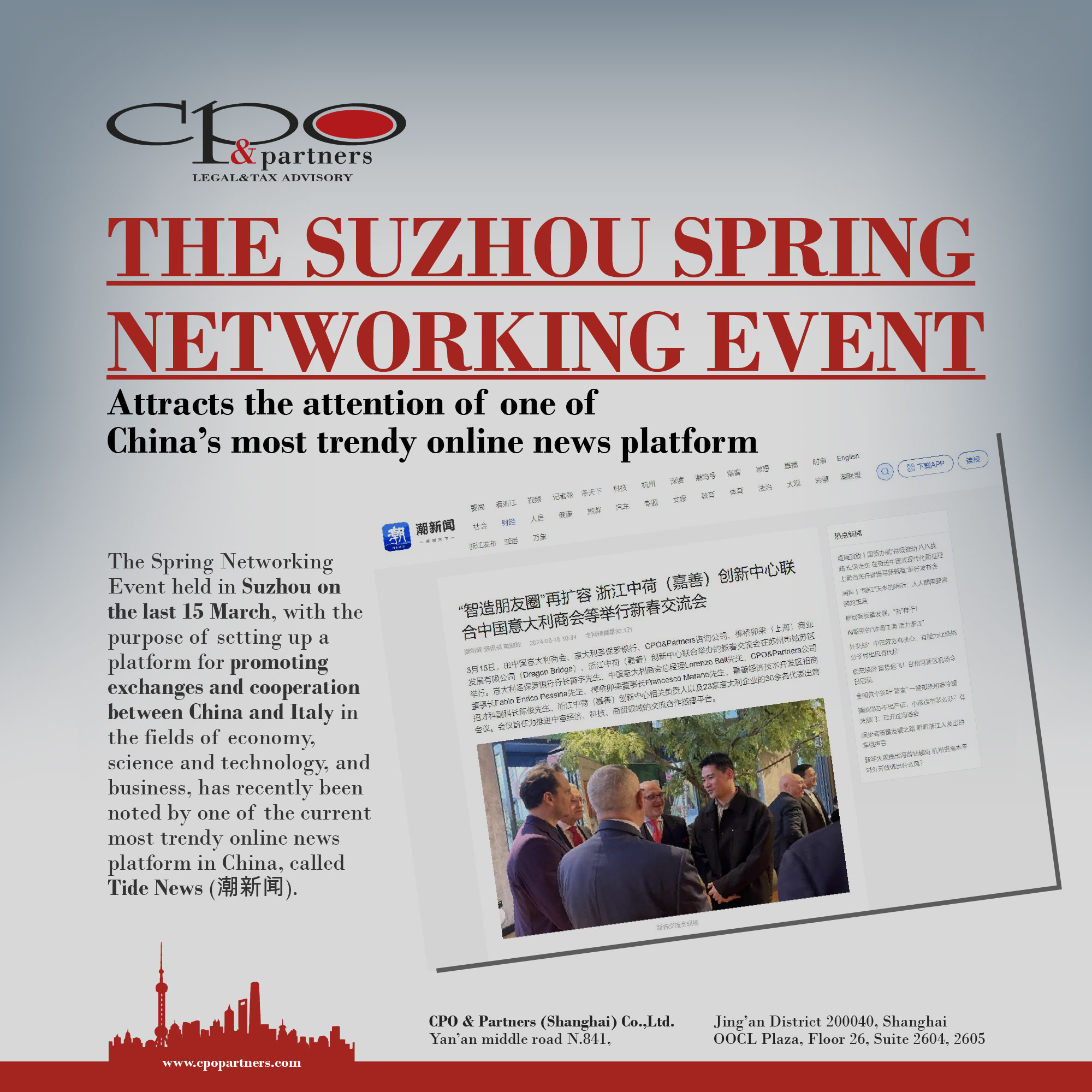
Update of the double taxation Agreement between the Italian and Chinese governments
On 15 April 2024 the Council of Ministers, upon the proposal of the Minister of Foreign Affairs and International Cooperation, Antonio Tajani, approved a bill for the ratification and execution of a previous Agreement stipulated with the government of the People’s Republic of China regarding double taxation with respect to income taxes and the prevention of tax evasion and avoidance.
The text approved on 15 April updates the already existing Agreement signed between the two States on 31 October 1986, in order to adapt the legislation to the recommendations of the OECD/G20 BEPS (Base Erosion and Profit Shifting) project.
The updated Agreement applies to residents of the contracting States, and for Italy in particular relates to IRPEF, IRES and IRAP taxes, by setting general and subsidiary criteria through which defining a person as “resident of a Contracting State”, and by clarifying the cases in which a “permanent establishment” is involved.
The approved text regulates specific topics related to the double taxation issue, among which there are: taxability of real estate income, which must be taxed in the State in which the real estate that represents the income source is located (albeit in a non-exclusive manner); the treatment of business profits, as well as profits deriving from the operation, in international traffic, of ships or aircrafts; taxation rules for capital income regarding dividends, interest, royalties and capital gains; distribution of taxation in the two contracting States in relation to: independent professions, subordinate work, members of management and supervisory boards, remuneration from artistic and sporting activities, as well as sums received as pensions or for other public functions performed; the criterion of exclusive taxation in the State of residence for any other residual type of non-mentioned income; the methods for eliminating double taxation, in accordance with the domestic legislation of each contracting State; anti-abuse provisions, the principle of non-discrimination, the mechanism of the amicable procedure for the resolution of disputes, and the exchange of information between the two States.
This initiative signals the intention of both governments to improve the condition of Italian companies operating in China and to give more certainty to Chinese investors interested in or already engaged with the Italian business environment.
Knowledge sharing on new business regulations for investment projects
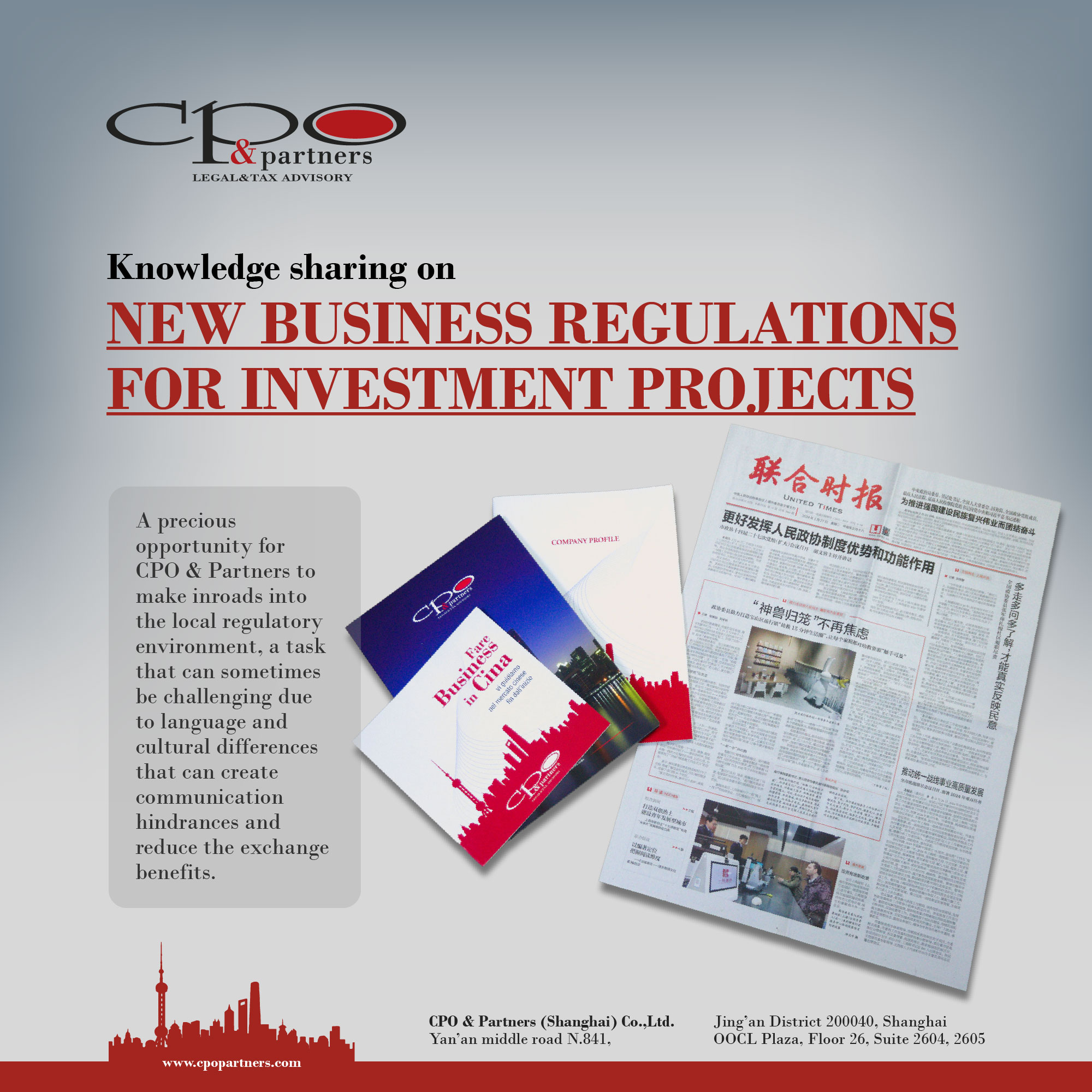
The business regulatory environment in China is in constant evolution, prompting local administrations to understand, manage, and carry out the new regulations issued at the national and provincial level, a task that can be burdensome due to the complexity of the matters involved. Recently, the Shanghai Municipality issued the «Shanghai Action Plan to Adhere to Benchmark Reform and Continuously Create a World-Class Business Environment», whose main intent is to reach a greater optimization of the business environment in China, so as to attract top-quality domestic and international companies.
As a legal and tax consultancy firm with a solid footprint in Shanghai, CPO & Partners went to visit the Jing’an Administrative Service Center to have a meeting with the district administration on the new policies for investment projects found in the «Shanghai Action Plan».
This represents a precious opportunity for CPO & Partners to make inroads into the local regulatory environment, a task that can sometimes be challenging due to language and cultural differences that can create communication hindrances and reduce the exchange benefits. Moreover, dealing with the district authorities is a good way to network with local offices and understand their functioning, in the belief that only by properly knowing the administrative system one can accurately provide consultation, in order to reach a win-win outcome that is advantageous for both parties.
ESTABLISHMENT OF THE JOINT VENTURE
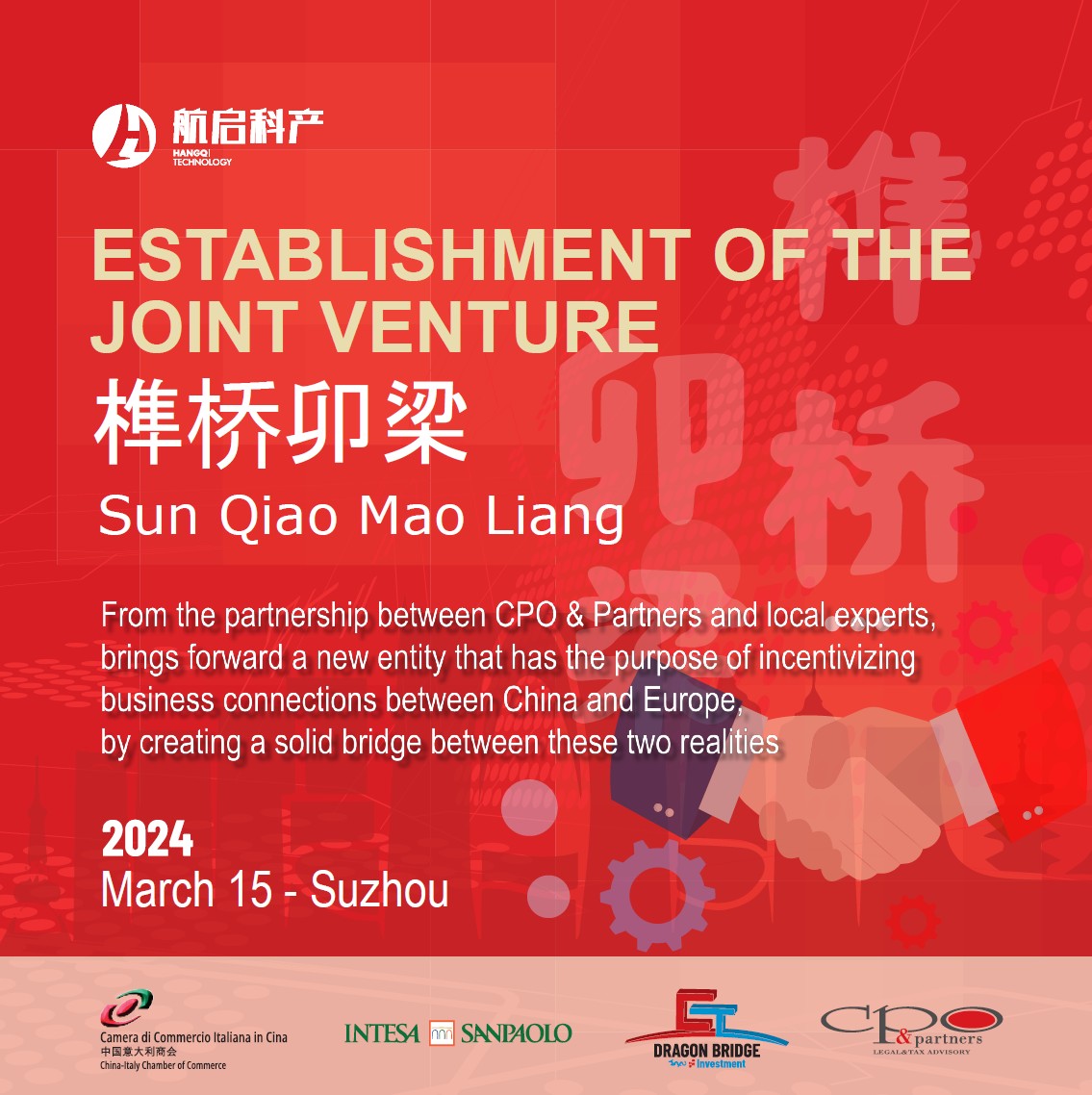
La costituzione della joint venture 榫桥卯梁Sun Qiao Mao Liang, nata dalla partnership tra CPO & Partners ed esperti locali, dà vita ad una nuova entità con lo scopo di promuovere le relazioni commerciali tra Cina ed Europa, creando un solido ponte tra queste due realtà.
Il nome scelto per questo nuovo progretto è già di per sé una dichiarazione dei principi che andranno a guidare tale partnership. I quattro caratteri cinesi scelti costituiscono l’unione di due distinte parole: 榫卯 e 桥梁. La seconda, qiaoliang, ponte, simboleggia l’unione che la joint venture intende creare tra il mondo del business cinese e quello europeo. La prima, sunmao, la giunzione a mortasa e tenone, incarna un più importante valore simbolico che trova le proprie radici nella secolare storia cinese. Sunmao era una tecnica strutturale impiegata nell’architettura e nei mobili dell’antica Cina, caratterizzata dalla combinazione di una parte concava e una convessa senza l’utilizzo di chiodi. La sua peculiarità non risiede solamente nell’ingegnosità della tecnica, ma soprattutto nella necessità di un perfetto adattamento tra ogni componente. È proprio questo adattamento a conferire solidità e durabilità all’intera struttura, come dimostra la Città Proibita, prezioso esempio di utilizzo del sunmao che senza dubbio è stata in grado di resistere alla prova del tempo.
È con questo spirito che Sun Qiao Mao Liang opererà: stabilire un perfetto e duraturo adattamento tra entità cinesi e straniere, per creare un ponte stabile tra Cina ed Europa, una connessione basata su un terreno solido e capace di resistere alla sfida del tempo.
Per introdurre questa nuova joint venture si terrà il 15 marzo a Suzhou un evento sponsorizzato dalla Camera di Commercio italiana in Cina, Banca Intesa Sanpaolo, Cpo & Partners e Jiashan Hangqike Industrial Park Management Co., Ltd. [verificare il nome], durante il quale verrà inoltre presentata una panoramica sulla situazione degli attuali e futuri rapporti di business tra Cina e Italia.
Productive meetings with government officials in Jiaxing
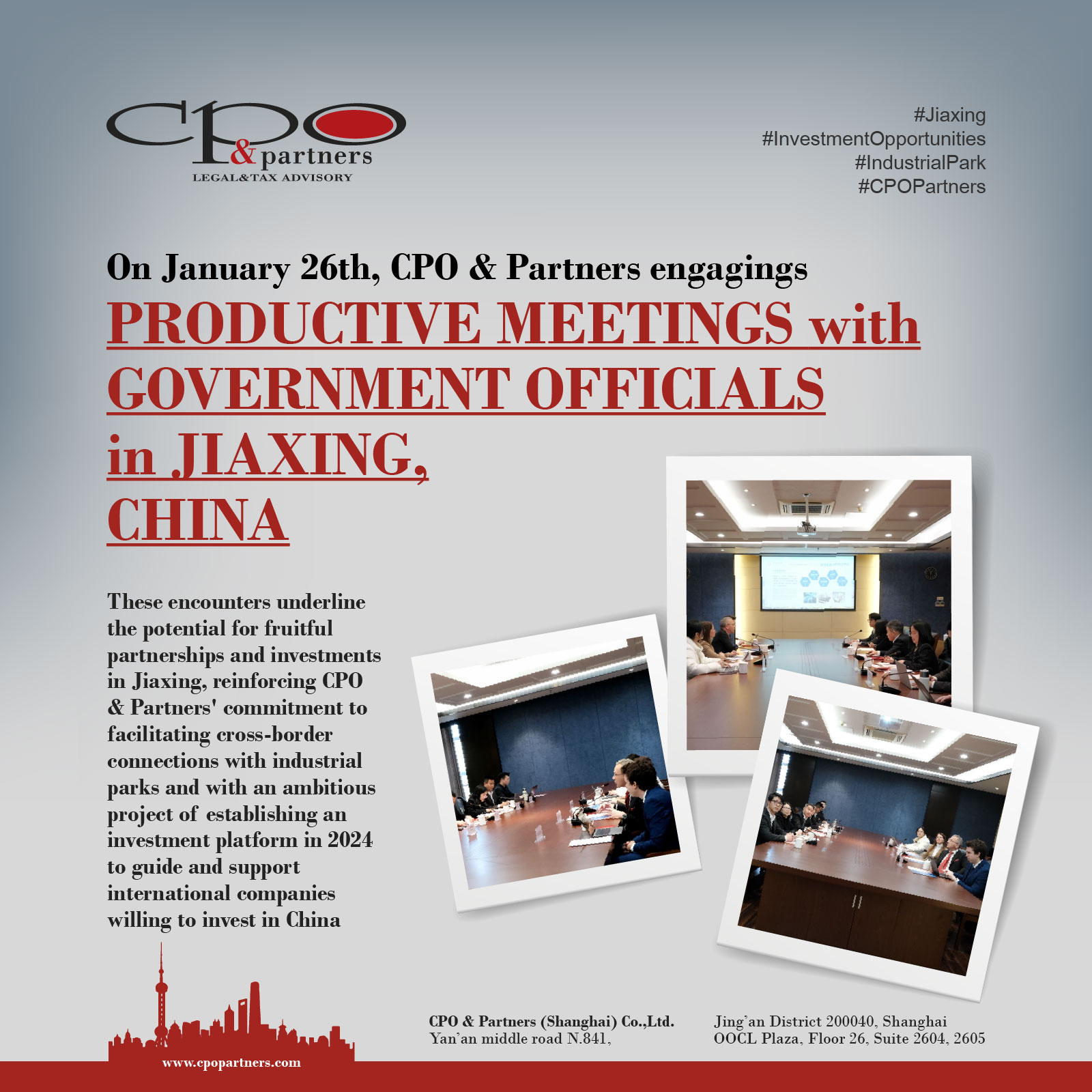
On January 26th, CPO & Partners had the privilege of engaging in a series of productive meetings with government officials in Jiaxing, China. The discussions centered on the diverse investment opportunities available in the region, highlighting Jiaxing’s commitment to fostering a conducive environment in Jiaxing for international business collaborations.
The visit was further enriched by an immersive experience in Science City, a hub of innovation and technology that exemplifies the forward-thinking ethos of Jiaxing. Additionally, we had the opportunity to visit CEBI, a renowned company in the automotive sector, which stands as a testament to the robust industrial capabilities and business-friendly policies in place.
These encounters underline the potential for fruitful partnerships and investments in Jiaxing, reinforcing CPO & Partners’ commitment to facilitating cross-border connections with industrial parks, with the project for year 2024 to create an investment platform for foreign companies that could be guided in the difficult interpretation of rules and choice of the most proper location for their investments. We remain dedicated to exploring avenues that benefit our clients and contribute to the economic development of the regions in which we operate.
Great Year of the Dragon 2024
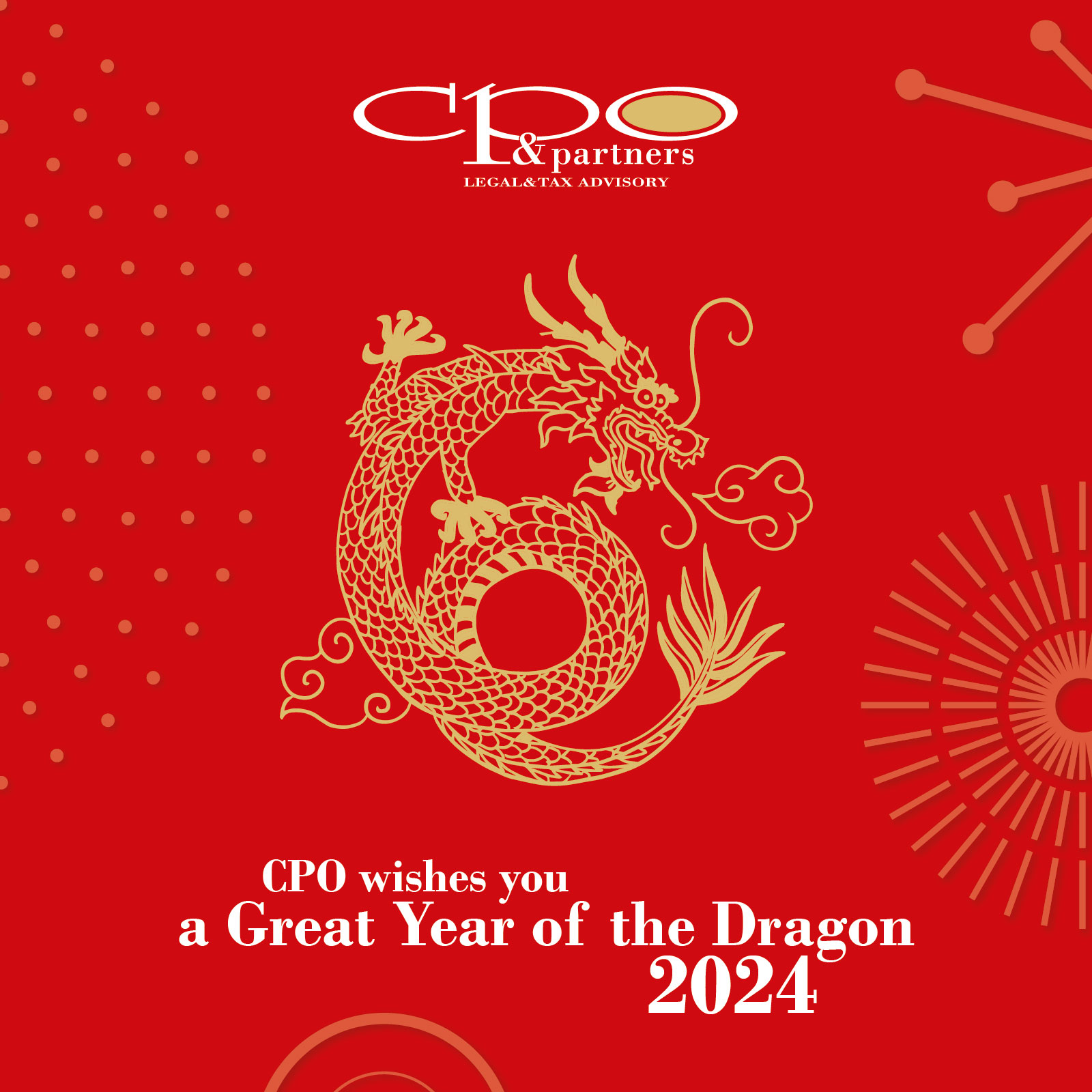
CPO & Partners Shanghai Office Holiday Closure Announcement
CPO & Partners Shanghai will observe the Chinese New Year Holiday from February 10th to February 17th, 2024.
Companies established after the enforcement of the new Company Law
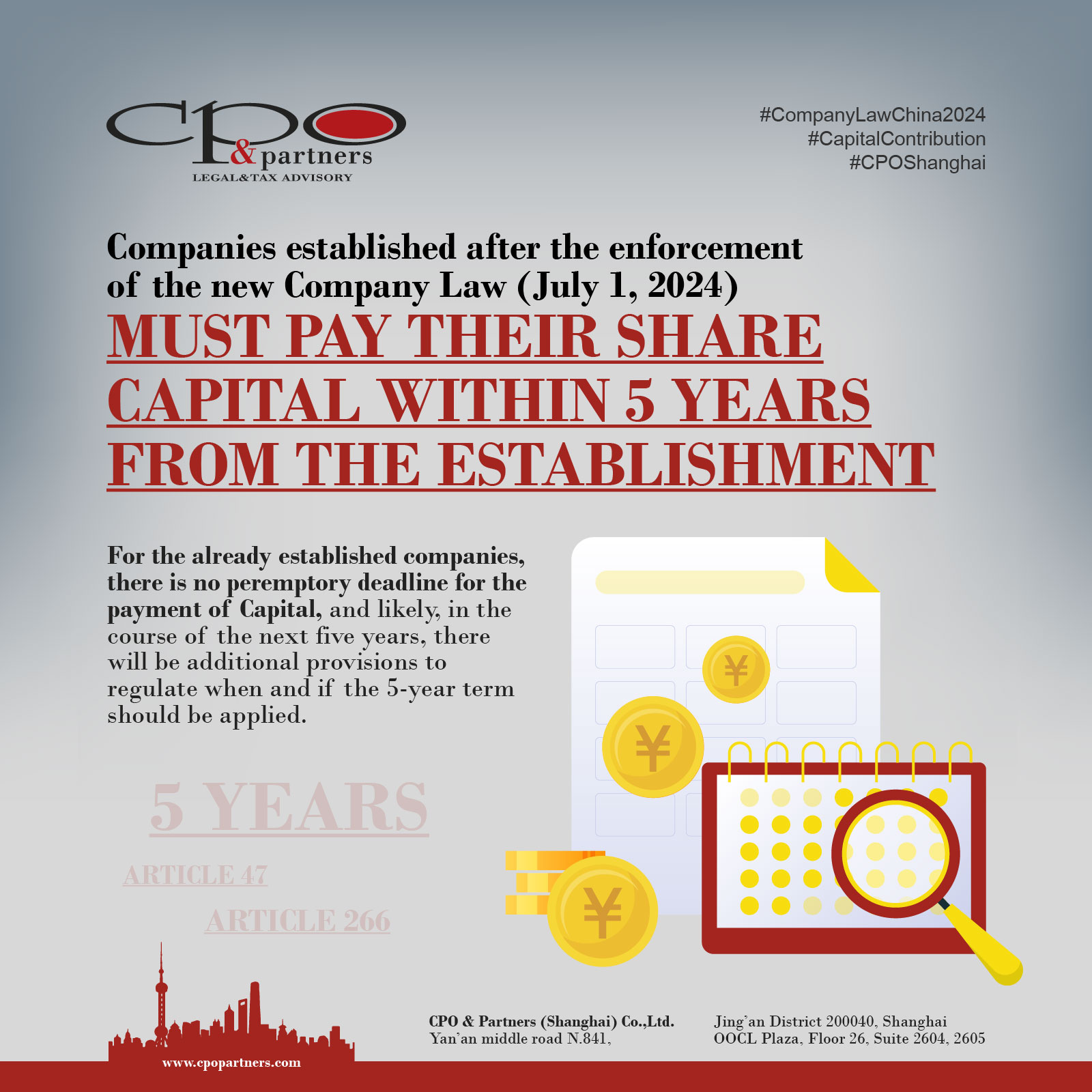
With the entry into force of the new Chinese Company Law on December 29, 2023, an important change has been introduced to the regulation of limited liability companies regarding the registered Capital. Specifically, companies established after the enforcement of the new Company Law (July 1, 2024) must pay their share capital within 5 years from the date of establishment. In detail:
– Article 47 states that for companies formed after the new regulation’s entry into force, the registered capital must be fully paid within five years from the date of incorporation. It should be noted that this requirement significantly changes the current situation by imposing a deadline for the full payment of the registered capital, which previously was not present.
– Article 266 essentially provides that companies established before the current law’s enforcement should bring their capital contributions within the provisions and rationale of the new regulation according to specific implementations rules that will be issued by the State Council.
In other words, for the already established companies, there is no peremptory deadline for the payment of Capital, and likely, in the course of the next five years, there will be additional provisions to regulate when and if the 5-year term should be applied.
Our team of professionals is available to assist you in interpreting and assure compliance to new regulations.
Incontro IMIT
